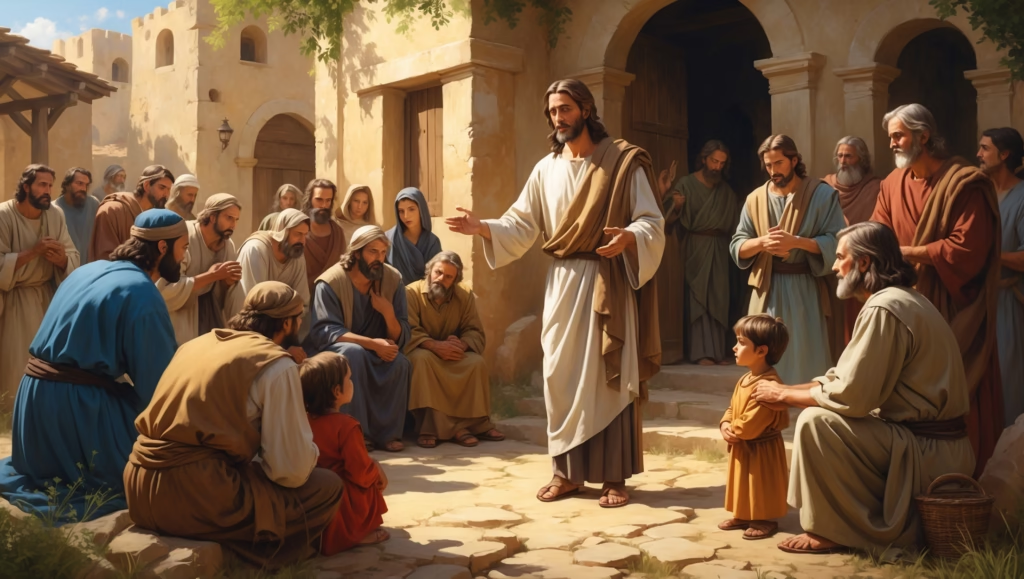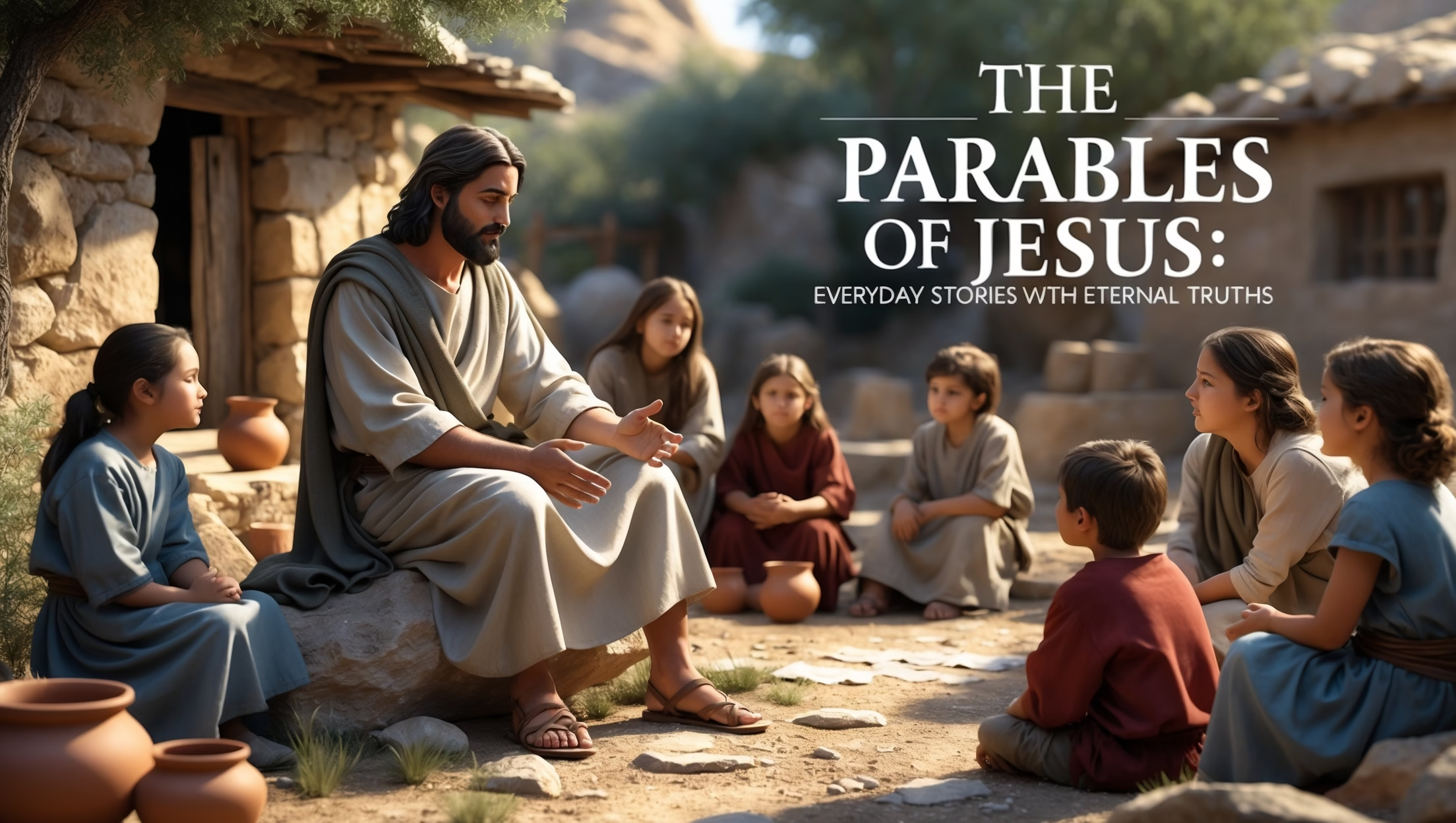Introduction
Forgiveness is at the very heart of Jesus’ teachings, and His use of parables illustrates profound truths about mercy, grace, and reconciliation. Through stories that were relatable to His audience, Jesus explained how God’s forgiveness works and how His followers are called to extend that same forgiveness to others. The parables are not merely stories—they are divine lessons designed to transform lives, challenging human pride and resentment while revealing the heart of God.
Jesus’ parables about forgiveness continue to resonate with readers today. They demonstrate that God’s mercy is not conditional upon human worthiness, but upon His love. By teaching forgiveness in this way, Jesus invited listeners to see themselves both as recipients of grace and as people responsible for showing mercy to others.

Key Parables
The Prodigal Son
Perhaps the most well-known parable on forgiveness is the Parable of the Prodigal Son (Luke 15:11–32). This story depicts a younger son who squanders his inheritance through reckless living but later returns home in desperation. Instead of condemnation, the father welcomes him with open arms, throws a feast, and restores his place in the family.
The father’s response symbolizes God’s boundless grace toward repentant sinners. The older brother’s resentment reflects the human tendency to struggle with extending forgiveness, especially when others appear undeserving. Jesus’ message here is clear: God’s love and mercy are greater than our sins, and His joy is in restoring what was lost.
The Unforgiving Servant
Another essential teaching is the Parable of the Unforgiving Servant (Matthew 18:21–35). In this story, a servant owes his king an enormous debt he could never repay. When the servant pleads for mercy, the king forgives him completely. However, the servant then refuses to forgive a fellow servant who owes him a small sum. Upon hearing this, the king rebukes him and delivers him to judgment.
This parable underscores that receiving forgiveness comes with the responsibility to extend it. Jesus emphasizes that God’s mercy is not a license to harbor bitterness, but a call to reflect His forgiveness in our relationships with others.
The Lost Sheep and the Lost Coin
While not directly about interpersonal forgiveness, the Parables of the Lost Sheep and the Lost Coin (Luke 15:3–10) highlight God’s relentless pursuit of reconciliation. They illustrate the joy in heaven over one sinner who repents, reinforcing the value of each individual and the lengths God will go to restore them. These stories remind us that forgiveness is not just an obligation but a celebration of renewed relationships.
The Two Debtors
In the Parable of the Two Debtors (Luke 7:36–50), Jesus teaches in response to a woman who anoints His feet with tears and perfume. He explains that those who have been forgiven much will love much, while those who believe they have little need for forgiveness often show little love. This lesson ties forgiveness to gratitude, love, and humility, pointing to the deep transformation that mercy brings.
Understanding God’s Heart
The parables reveal God’s heart as one of compassion and mercy. Forgiveness is not a reluctant act for Him—it is a joyful extension of His nature. Through stories like the Prodigal Son, Jesus shows that God’s forgiveness restores dignity, reestablishes relationships, and brings joy.
Moreover, these parables dismantle cultural and religious barriers. Many of Jesus’ listeners believed forgiveness should be limited or earned. Jesus countered this by portraying God as one who forgives freely and abundantly. His teaching challenges human systems of merit and retribution, pointing instead to a divine standard rooted in grace.
Repentance is also central to these stories. Jesus consistently links forgiveness with a turning of the heart toward God. Repentance is not about perfection but about humility—acknowledging one’s need for mercy. The parables remind us that God eagerly receives all who turn back to Him, no matter how far they have strayed.
Application Today
The parables about forgiveness are not just ancient lessons; they carry deep relevance for modern life. In a world marked by resentment, division, and conflict, Jesus’ stories invite believers to embody forgiveness as a way of life.
- Personal Forgiveness
Followers of Jesus are called to release bitterness and extend mercy, even when it feels undeserved. Just as the servant in the parable was expected to forgive after receiving mercy, Christians today are challenged to forgive others as they themselves have been forgiven. - Family and Relationships
The Prodigal Son shows how forgiveness restores broken family ties. Families and close relationships often experience deep wounds, but Jesus’ teaching encourages reconciliation and rebuilding through grace. - Community and Society
On a broader scale, the message of forgiveness has power to heal divisions in communities and even between nations. Forgiveness does not erase justice but works alongside it to create restoration and peace. - Spiritual Growth
Living with a forgiving heart allows believers to grow spiritually. Holding onto grudges hardens the heart, while practicing forgiveness reflects Christ’s character and nurtures inner freedom.
Ultimately, forgiveness is not optional for those who follow Jesus—it is foundational. His parables urge believers to recognize the immense grace they have received and to extend that same grace to others, regardless of cultural, personal, or social barriers.
Conclusion
Jesus’ use of parables about forgiveness remains one of the most profound aspects of His teaching. Through simple yet powerful stories, He revealed God’s limitless mercy, the importance of repentance, and the responsibility of extending forgiveness to others. The parables challenge every generation to move beyond resentment and embrace reconciliation as a reflection of God’s heart.
By applying these lessons today, believers can create communities rooted in mercy, foster healing in broken relationships, and live out a faith that mirrors the boundless forgiveness of Christ.








